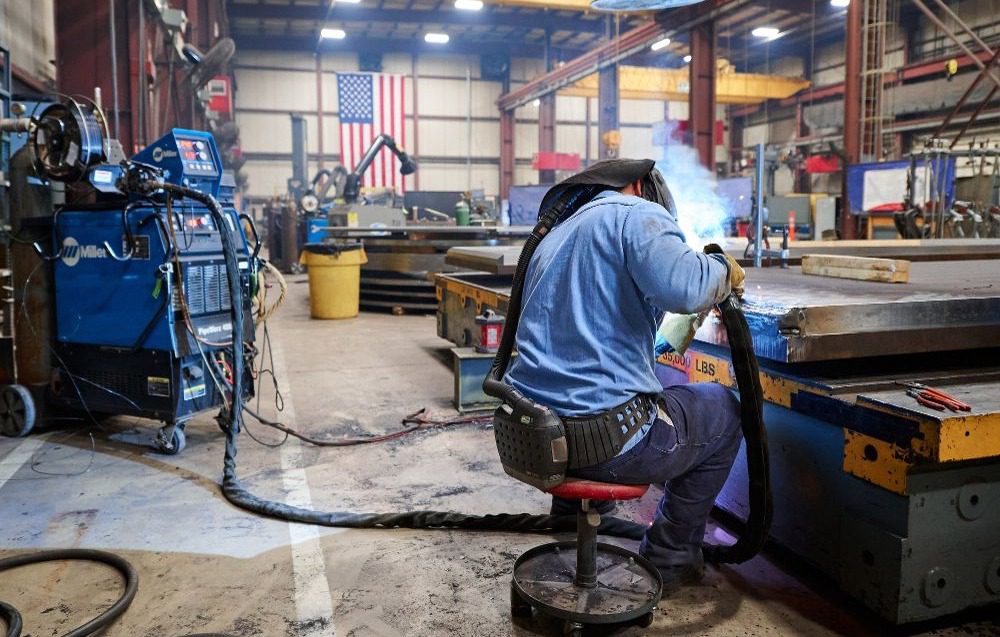Major Tool Combines Talent And Automation



Major Tool & Machine is humming like a lathe these days, but the $160 million company is facing an increasingly acute shortage of skilled labor. Mike Griffith, president, and his team are countering with a take-no-prisoners approach to employee retention and acquisition combined with an accelerating embrace of the Industry 4.0 industrial-automation systems that are picking up where sparse and outmatched humans leave off.
The 420-employee Indianapolis company is a contract manufacturer of large and complex machining, fabrication, assembly and testing services for markets ranging from defense to nuclear power to semiconductors. Maine-based Precinmac, a diversified maker of high-precision machined components and assemblies, acquired Major earlier this year.
Griffith continues to optimize the care and feeding of Major’s workforce as the company’s biggest asset in taking advantage of growth opportunities. Here’s some of what he’s doing:
• Improve the handoff: “Ten years down the road, 25 percent of our workforce will be retired,” Griffith said. “Five percent is eligible for retirement right now. The loss of institutional knowledge there will be a killer. We have some of the most skilled welders in the country. Sometimes you don’t even know what you’re missing until they leave.”
• Flip ’em the keys: Twenty percent of employees have been with Major for 20 years or more. They’re attracted, for example, by regular service awards that recently culminated in the gift of Cadillacs to two employees who’d been with the company for a half-century. Major also takes dozens of long-serving employees to a huge Christmas lunch at a surprise location every year. “We’re a family,” Griffith said.
• Skill your own: Major established its own training program for machinists and welders who typically come out of high school or vocational colleges. It pays mentors an extra $1,000 a month to hand-hold a welder or maintenance trainee. Major works with a Toyota-led program for maintenance apprenticeships.
• Reach out—everywhere: The company sponsors Manufacturing Days for kids, school tours, job fairs, radio ads, referral bonuses—yet it’s a losing battle. “I can’t even find people to fill some of the simplest jobs,” Griffith said.
Facing the seemingly inevitable further slippage of the quality of its human workforce, Major has been taking these steps:
• Document everything: Last summer the company had nine interns “documenting the heck out of everything we do.”
• Create automation momentum: Major is swinging decisively into more automation: robotic welding and sensor-fed and AI-powered controls on multimillion-dollar machine tools to avoid human errors that could be disastrous.
• Aim for the holy grail: “Tool-monitoring adaptive control is the next step for us,” Griffith said. “We’re forced to put people on multimillion-dollar machines and with no more than five or six years as a machinist. We have to adapt technology to help protect ourselves and make us more efficient.”

Chief Executive Group exists to improve the performance of U.S. CEOs, senior executives and public-company directors, helping you grow your companies, build your communities and strengthen society. Learn more at chiefexecutivegroup.com.
0

1:00 - 5:00 pm
Over 70% of Executives Surveyed Agree: Many Strategic Planning Efforts Lack Systematic Approach Tips for Enhancing Your Strategic Planning Process
Executives expressed frustration with their current strategic planning process. Issues include:
Steve Rutan and Denise Harrison have put together an afternoon workshop that will provide the tools you need to address these concerns. They have worked with hundreds of executives to develop a systematic approach that will enable your team to make better decisions during strategic planning. Steve and Denise will walk you through exercises for prioritizing your lists and steps that will reset and reinvigorate your process. This will be a hands-on workshop that will enable you to think about your business as you use the tools that are being presented. If you are ready for a Strategic Planning tune-up, select this workshop in your registration form. The additional fee of $695 will be added to your total.

2:00 - 5:00 pm
Female leaders face the same issues all leaders do, but they often face additional challenges too. In this peer session, we will facilitate a discussion of best practices and how to overcome common barriers to help women leaders be more effective within and outside their organizations.
Limited space available.

10:30 - 5:00 pm
General’s Retreat at Hermitage Golf Course
Sponsored by UBS
General’s Retreat, built in 1986 with architect Gary Roger Baird, has been voted the “Best Golf Course in Nashville” and is a “must play” when visiting the Nashville, Tennessee area. With the beautiful setting along the Cumberland River, golfers of all capabilities will thoroughly enjoy the golf, scenery and hospitality.
The golf outing fee includes transportation to and from the hotel, greens/cart fees, use of practice facilities, and boxed lunch. The bus will leave the hotel at 10:30 am for a noon shotgun start and return to the hotel after the cocktail reception following the completion of the round.